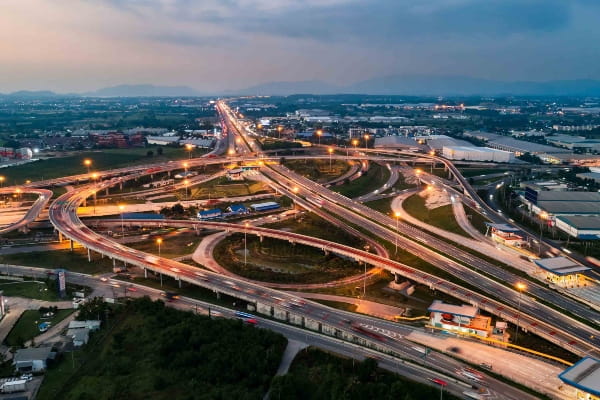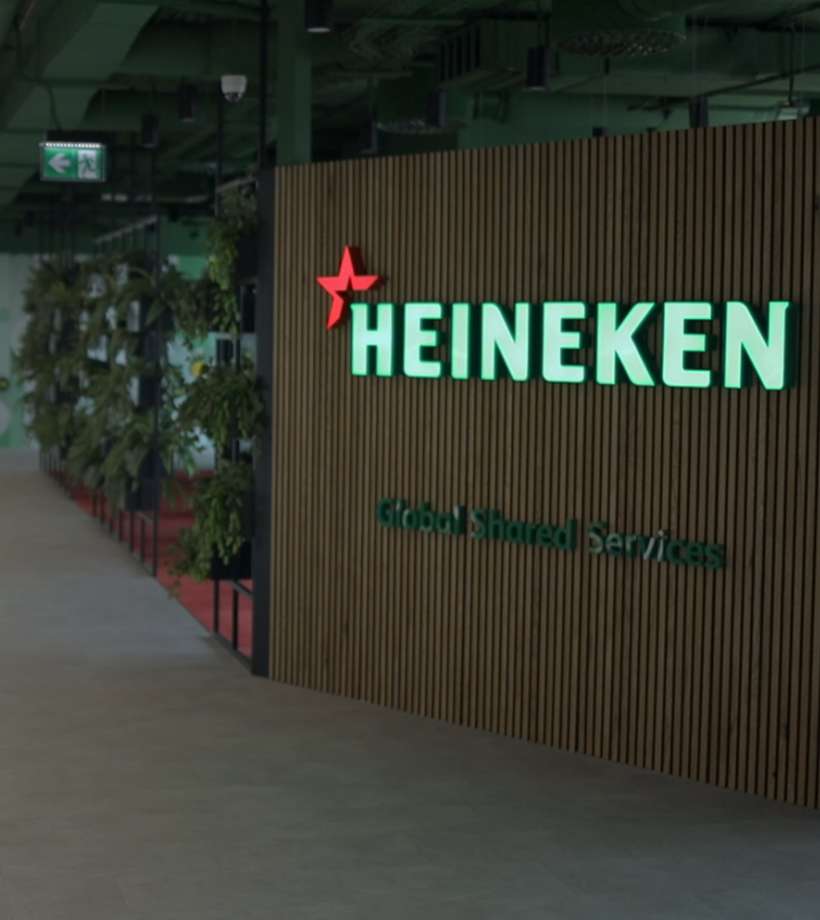-
Featured services
Harness innovation to deliver value
Ensure short-term stability as you design a roadmap for new use cases in your industry with emerging technologies.
Explore Connected Industries -
Services
View all services and productsLeverage our capabilities to accelerate your business transformation.
-
Services
Network as a Service
Popular Products
-
Private 5G
Our turnkey private 5G network enables custom-built solutions that are designed around unique use cases and strategies, and deployed, run and optimized through a full network-as-a-service model.
-
Managed Campus Networks
Our Managed Campus Networks services transform campus networks, corporate area networks and interconnected local area networks, and connect smart places and industries.
-
-
Services
Cloud Services
Popular Products
-
Cloud Migration and Transformation Services
Access the people, processes and technologies you need to deliver cloud migration projects that improve your return on investments.
-
Site Reliability Engineering Services
Get the most from your cloud investments when you harness our Site Reliability Engineering Services to support app development and lifecycle management.
-
-
Services
Edge as a Service
Client stories
-
Penske Entertainment and the NTT INDYCAR SERIES
Together with Penske Entertainment, we’re delivering digital innovations for their businesses – including INDYCAR, the sanctioning body of the NTT INDYCAR SERIES – and venues such as the iconic Indianapolis Motor Speedway, home to the Indianapolis 500.
-
Using private wireless networks to power IoT environments with Schneider Electric
Our combined capabilities enable a secure, end-to-end digital on-premises platform that supports different industries with the benefits of private 5G.
-
-
Services
Technology Solutions
Client stories
-
Services
Global Data Centers
-
Services
Digital Collaboration and CX

IDC MarketScape: Worldwide Datacenter Services 2023 Vendor Assessment
We provide a new kind of intelligent infrastructure to deliver better outcomes through technology.
Get the IDC MarketScape -
-
-
Insights
Recent Insights
-
The Future of Networking in 2025 and Beyond
-
Using the cloud to cut costs needs the right approach
When organizations focus on transformation, a move to the cloud can deliver cost savings – but they often need expert advice to help them along their journey
-
Make zero trust security work for your organization
Make zero trust security work for your organization across hybrid work environments.
-
-

Copilot for Microsoft 365
Everyone can work smarter with a powerful AI tool for everyday work.
Explore Copilot today -
-
Global Employee Experience Trends Report
Excel in EX with research based on interviews with over 1,400 decision-makers across the globe.
Get the EX report -
Discover how we accelerate your business transformation
-
About us
CLIENT STORIES
-
Liantis
Over time, Liantis – an established HR company in Belgium – had built up data islands and isolated solutions as part of their legacy system.
-
Randstad
We ensured that Randstad’s migration to Genesys Cloud CX had no impact on availability, ensuring an exceptional user experience for clients and talent.
-
-
CLIENT STORIES
-
Liantis
Over time, Liantis – an established HR company in Belgium – had built up data islands and isolated solutions as part of their legacy system.
-
Randstad
We ensured that Randstad’s migration to Genesys Cloud CX had no impact on availability, ensuring an exceptional user experience for clients and talent.
-
-
CLIENT STORIES
-
Liantis
Over time, Liantis – an established HR company in Belgium – had built up data islands and isolated solutions as part of their legacy system.
-
Randstad
We ensured that Randstad’s migration to Genesys Cloud CX had no impact on availability, ensuring an exceptional user experience for clients and talent.
-

NTT DATA and HEINEKEN
HEINEKEN revolutionizes employee experience and collaboration with a hybrid workplace model.
Read the HEINEKEN story -
- Careers
Topics in this article
Roundtable 2021: What’s changing in the Dallas data center market
We recently joined experts from datacenterHawk and iland, a global cloud service provider, at the DatacenterDynamics Dallas TX1 data center event. One of the panel sessions focused on the future of colocation in the Dallas/Ft. Worth (DFW) data center market, now the third largest in North America. In this blog, you’ll discover why the DFW data center market is growing so fast.
Why Dallas colocation?
First, some brief context of the Dallas-area data center market: In the U.S. today, northern Virginia is the number one data center market, and Dallas is the third largest based on multitenant commissioned power. DFW’s 432 megawatts of multi-tenant commissioned power is up from 240 megawatts in 2016. That adds up to a growth of about 40 megawatts a year.
‘The robust infrastructure that's here from a power connectivity standpoint allows data center users to really look at their infrastructure strategy and figure out ways to continue to mature that. And for the most part, the infrastructure paints a good picture, related to how they can grow in the market.’ — David Liggitt, datacenterHawk
The competitive landscape of the colocation market in the DFW area has been driven by organizations that increasingly realized their data management needs were best served by a third-party cloud provider. Incumbent customers that find this market attractive are increasing their footprints; the growth in demand has come primarily from enterprise clients including:
- financial
- tech
- insurance companies
- smaller cloud providers
But what makes Dallas so popular?
The DFW Data Center Market: Advantages
1. Favorable total cost of ownership (TCO)
The Dallas/Ft. Worth metroplex has become one of the fastest-growing data center markets in the country. That’s because people recognize the benefits of the location: not only is there room to scale, but it’s also a carrier/fiber dense area that offers very favorable TCO thanks to low power costs and tax incentives.
Power costs are priced better in Texas with its own power grid, which adds up to a lower total cost of ownership when power costs are factored into the overall equation. This is especially important as data center clients expand their footprints. Existing DFW-area customers recognize this value, and benefit from the tax incentives granted to large enterprises.
‘[There are] very reliable, very low-cost power options in Dallas and in Texas. And as our clients start to deploy bigger and bigger footprints, the cost of power becomes a significant piece of the total cost of ownership that we need to look at.’ — Steve Lim, NTT
Data centers in Texas enjoy state sales tax exemptions for necessary and essential items including electricity and electrical equipment, cooling systems, emergency generators and network hardware, just to name a few.
2. Positioned for sustained growth
Today’s data center customers are rethinking their priorities when it comes to location and positioning. The number and variety of existing data center customers that have already made the DFW choice are taking advantage of this vibrant market for business opportunities. From talent to potential clients, it’s an area you should consider, as well.
Since the Dallas area is in the central United States, it’s advantageously positioned geographically and is a vital hub for cross-continental traffic. Its physical location makes the DFW metroplex attractive not only for data centers, but for headquarters and large satellite offices for the types of companies mentioned earlier as well.
‘If I look at the last decade of business for us, Dallas is a critical market. And if you think about things like data protection, offside disaster recovery services, things of that nature, Dallas is a fantastic location.’—Dante Orsini, iland
Although the geographic locations of the Dallas data center market have tended toward spreading out well into the suburbs over the last several years, there’s ample room for colocation providers and clients alike to grow into suburbs and exurbs in all directions.
It’s been exciting watching the DFW market grow not only from a colocation and hyperscale perspective, but about the talent pool as well. The CBRE “Scoring Tech Talent” report ranks 50 markets in North America on attracting and growing tech talent. The 2020 report ranked the Dallas metroplex as the fifth largest tech-talent labor pool in the country. With increases in tech degrees over the past decade along with growth in millennial population and affordable cost of living, it’s no wonder DFW continues attracting top tech talent and employers.
3. They say everything’s bigger in Texas - including interconnectivity
When most people think tech in Texas, the so-called Silicon Hills in the Austin area might first come to mind. But cloud services customers are increasingly choosing Dallas-Fort Worth because it’s already the state’s largest data center market. And multiple cloud service providers, including the top three—AWS, Google, and Microsoft—are all expanding their Texas footprints. Considering that the top three cloud service providers together hold more than 50% of the cloud infrastructure services market, this expansion is certain to attract more cloud services clients in and around the central US.
Google is planning to invest more than $1 billion in data center infrastructure in the Dallas-Fort Worth metroplex. With investments like this, the colocation market in Dallas is poised for continued expansion to meet demands in the future from Texas and beyond.
‘One of the most interesting parts about the DFW data center market in the last five years has been the competitive nature of the colocation market. Here in Dallas, we have the largest data center operators with incredible data center facilities.’— David Liggitt, datacenterHawk
It’s all about connectivity: data center clients are prioritizing interconnectivity, not only between carrier hotels, data centers and the rest of the world, but also with other cloud services within their business. Thus, the ability to interconnect all a customer’s environments is becoming increasingly critical. After all, a data center should be more than an oversized cold storage locker for servers. The bigger metropolitan area, bigger technical workforce, bigger financial incentives, bigger employers, and bigger cloud infrastructure all add up to a bigger data center market.
To Sum Up the Dallas Data Center Market
To summarize, The Dallas/Fort Worth metroplex is a mature data center market that’s scaling up in a way that will continue to serve colocation needs not just today but in the future. The most compelling reasons why DFW remains such a key data center market in the US include:
- third largest data center market, currently with 432 megawatts of multi-tenant commissioned power
- large enterprise headquarters and satellite offices presence
- centralized location in the US
- state sales tax incentives
- power costs
- large runway for growth
- fifth largest tech talent labor pool in the US
- affordable cost of living and operating costs
- the largest data center market in Texas
- top three cloud providers expanding into Texas
- mature cloud presence
To get in on the Dallas action, check out our award-winning TX1 Data Center today.

